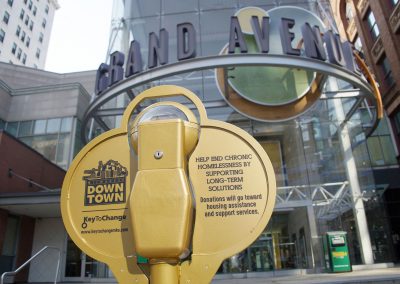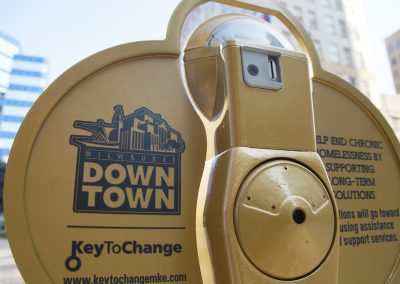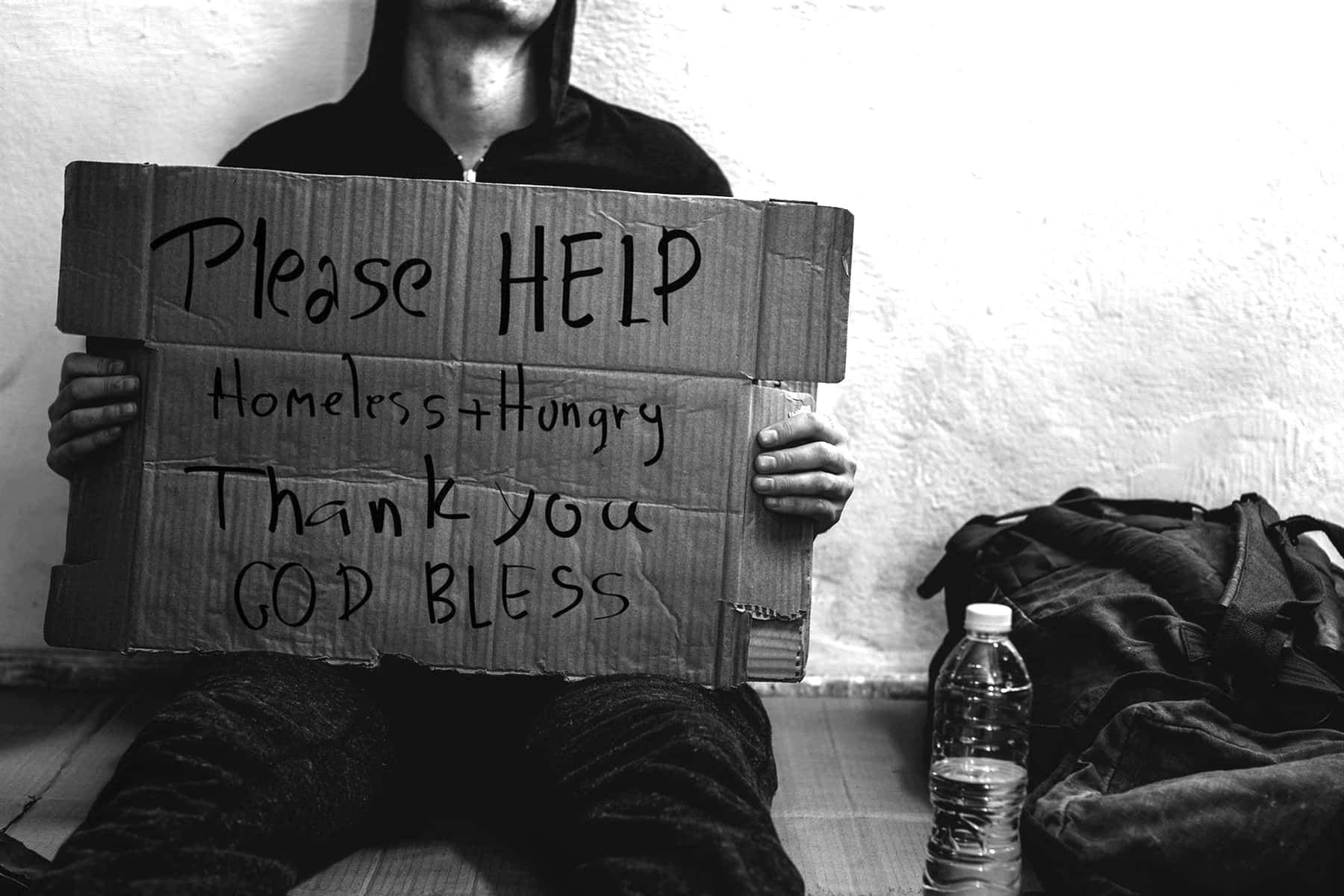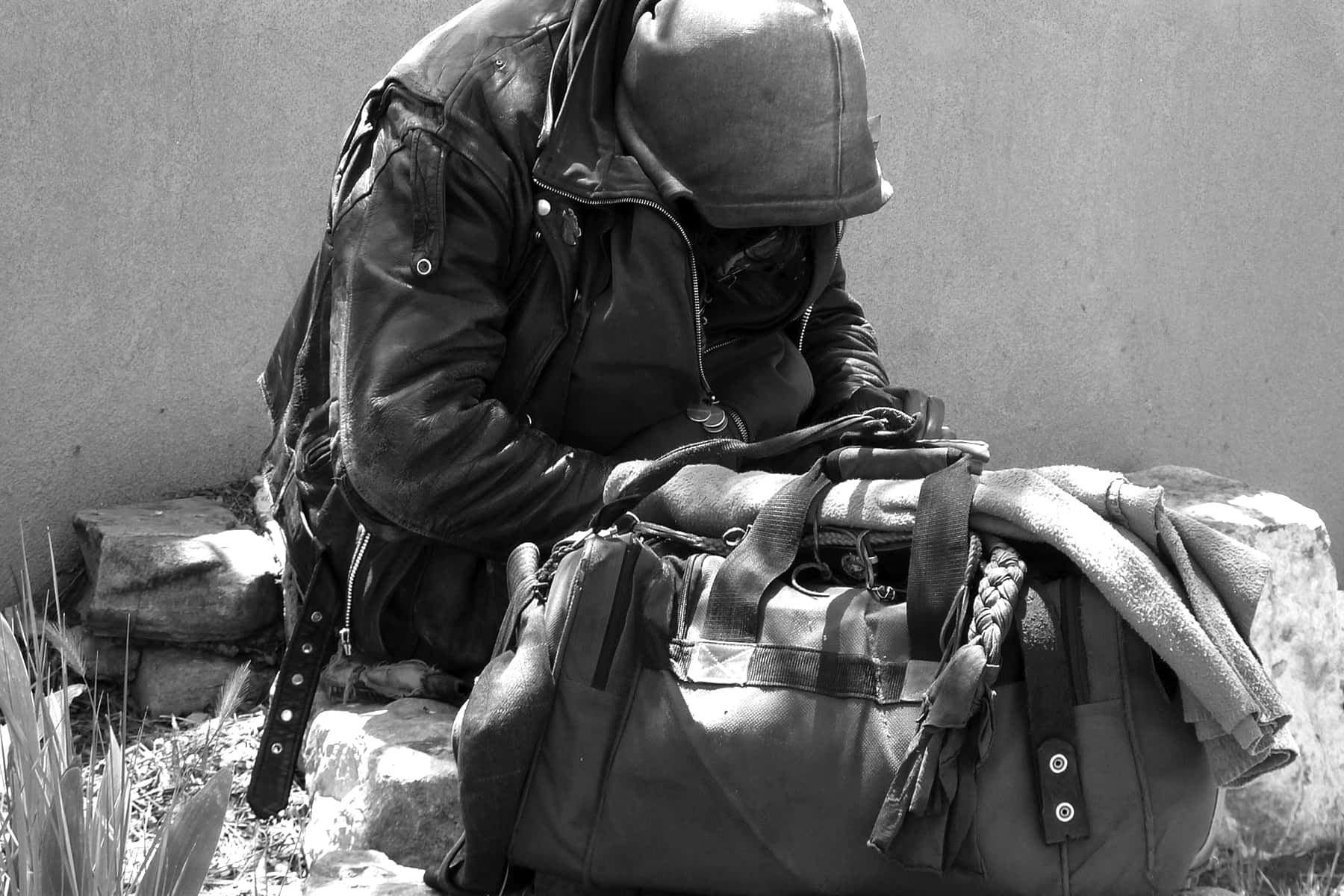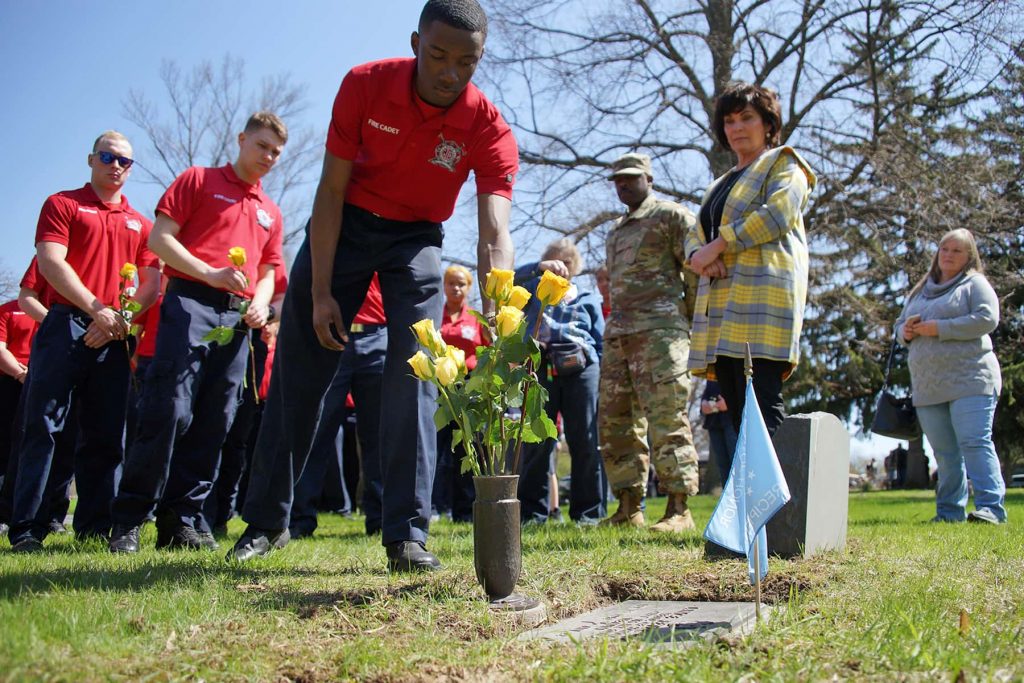
The end of the year holidays brings a lot of attention to helping those in the community who are less fortunate. That short-lived spirit of good will often ends just as abruptly as the season. But for Milwaukee’s homeless, their hunger and needs continue daily, throughout the entire year. One ongoing campaign aims to end homelessness through an outreach coordinator and housing placements.
Milwaukee Downtown has been appealing to the local community to aid in its homeless outreach efforts. As part of its Key to Change campaign, BID #21 has set a goal of raising $225,000 to fund a Downtown Homeless Outreach Coordinator for a minimum of three years.
Working with the Milwaukee County Housing Division, the Downtown Homeless Outreach Coordinator would provide housing and wraparound services to individuals and families living on the streets.
Funding for a Downtown Homeless Outreach Coordinator is one component of the Key to Change campaign, which was launched in September 2017 to elevate awareness and provide assistance to existing quality of life programs.
Through seven retrofitted parking meters designed to resemble keys, and an online donation platform, the organization has raised more than $25,000 to date to support Milwaukee County Housing Division’s Housing First initiative and funding for a Downtown Homeless Outreach Coordinator.
“The need for a Downtown Homeless Outreach Coordinator becomes more critical during the winter months,” said Beth Weirick, CEO of Milwaukee Downtown BID #21. “It’s an emergency situation when we have individuals and families living on the streets during freezing temperatures. The full-time Downtown Homeless Outreach Coordinator position would enhance and support county and city initiatives, such as Housing First, and be a first respondent to other homeless-related issues.”
Housing First is a national model for addressing chronic homelessness that provides housing as the first step toward stabilization. Established locally in September 2015 by the Milwaukee County Housing Division, homeless individuals are provided permanent housing followed by wraparound services, which range from rehabilitation and counseling to job training and placement.
Since beginning its Housing First initiative, Milwaukee County Housing Division has successfully placed more than 475 chronically homeless Milwaukeeans into permanent supportive housing. The local initiative maintains a 96 percent retention rate. Meanwhile, national models demonstrate an 84 percent retention rate.
In addition, Milwaukee County Housing Division housed more than 75 families in Rapid Rehousing. In 2015 when Housing First started, the County placed 338 homeless individuals into housing, meanwhile 1,415 individuals were counted in the Point in Time homeless survey. Comparatively, in the summer of 2018, the Point in Time survey showed a dramatic decrease to 833 individuals living on the streets.
This decline in the city’s homeless population is a testament to the success of Housing First and Milwaukee County being on the verge of the largest county in the nation to end chronic homelessness.
“Programs that put emphasis on housing as a first step toward stabilization are effective, long-term solutions to end homelessness in our community,” said James Mathy, housing administrator for Milwaukee County Housing Division. “The success of Housing First and our outreach coordinators’ efforts in removing people from the streets have had a tremendous impact.”
Primary responsibilities of the Downtown Homeless Outreach Coordinator would include: (1) identifying and building rapport with homeless individuals living on the streets in downtown Milwaukee; (2) assisting clients in breaking the cycle of homelessness by moving them to permanent housing; and (3) providing individual client support, helping each client to develop a plan to address their barriers, increase their income and maintain permanent housing. In addition, the Downtown Homeless Outreach Coordinator would respond to concerns from police, business owners, residents and downtown visitors.
“Quality of life is a top priority for our downtown stakeholders,” added Weirick. “We have a responsibility, morally and socially, to care for all our neighbors and what better time to remember that than the holiday season.”
Coordinated by Milwaukee Downtown BID #21, Key to Change is a partnership among the Milwaukee County Housing Division, City of Milwaukee, Marquette University, Milwaukee Police Department, City of Milwaukee – Office of the City Attorney, Milwaukee County District Attorney’s Office, East Town Association, Westown Association and Historic Third Ward Association.
275 W. Wisconsin Avenue
1612 W. Wisconsin Avenue
500 W. Wisconsin Avenue
380 W. Wisconsin Avenue
112 W. Wisconsin Avenue
411 E. Wisconsin Avenue
626 E. Wisconsin Avenue
© Photo
Lee Matz

